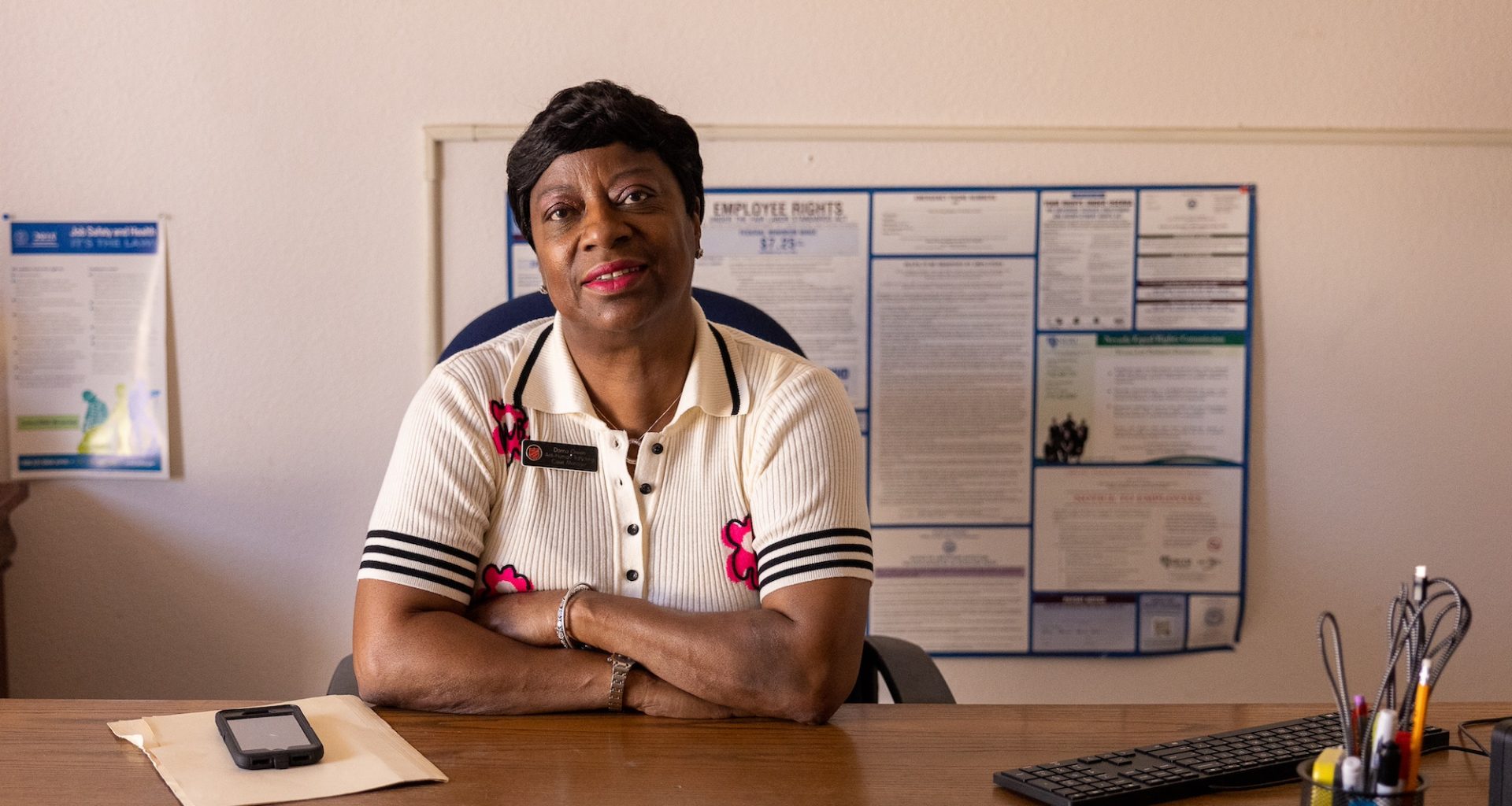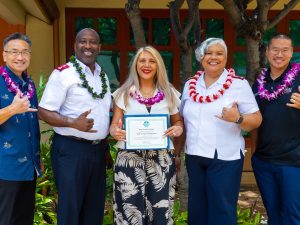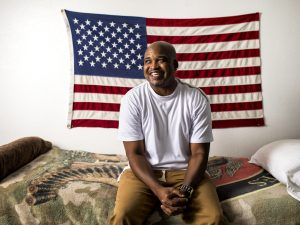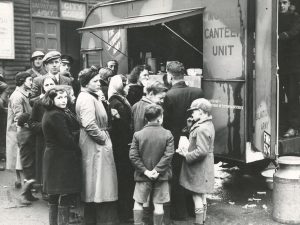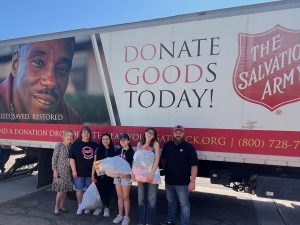The Salvation Army SEEDS of Hope program reaches survivors of human trafficking in Las Vegas—and helped Desirae rebuild her life.
After escaping a relationship with a man who became her trafficker, Desirae* called the National Human Trafficking Hotline.
She was referred to The Salvation Army SEEDS of Hope program in Las Vegas—one of The Salvation Army’s 13 anti-trafficking programs in the Western U.S. that offer wraparound services and trauma-informed care, often in life-threatening situations.
“I was in a dark place and didn’t know where I would wind up being,” she said. “I was having altercations with my mom because of my lifestyle. I had just finished school and there was a lot going on in my life. I just needed to escape from the way I was living.”
There, in October 2021, Donna Green became her case manager and the pair worked together for her healing.
Desirae also received mental health therapy and participated in trauma-informed groups.
“I learned that I am very capable of doing anything I set my mind on. I realized that I am resourceful, and I have a very good support system,” she said. She returned to school and graduated in May 2022 with an associate’s degree in health care administration, and secured a full-time job.
And that’s exactly the goal, Green said—self-sufficiency.
“I attended her graduation, and I was hollering,” Green said. “She really did make me proud. And these are the things I look forward to when I come to work…That’s more fulfilling than any money in the world. To see somebody come from nothing and create something.”
Human trafficking is big business—an estimated $150 billion industry involving nearly 50 million people around the world, according to the International Labour Organization (ILO). Globally, The Salvation Army provides support to survivors through dedicated anti-human trafficking programs. Professionals like Green make it happen.
Here, she shares what it’s like to be on the frontlines of the fight against human trafficking.
Caring Magazine: What should people know about human trafficking that maybe they wouldn’t know?
Donna Green: They should know that it’s an issue. And it’s a big issue. Not only in Vegas—it’s happening everywhere… And another thing they need to know is that these people are human. They are people that we need to reach out to—and they can be saved, if we put in the effort to save them. And they don’t want much—most just want a place to lay their head so they can recuperate from what they’ve been through, three meals a day, some fresh clothes and a shower. You don’t realize how much that means to a person who’s been in the streets for months, maybe under the thumb of someone else. So I would say to people: Don’t discriminate and don’t judge because these are human beings.
Often survivors are referred to you by other agencies, the trafficking task force, the police or the website. Once they’re connected to the SEEDS of Hope program, what comes next?
I do an assessment over the phone and then I bring them in…I have to really screen them to make sure that this is the appropriate program for them, and if they don’t need a higher level of care, and if so I’ll refer them out because there is a lot of mental health issues connected to trafficking. So I bring them in… single people, male, female, it doesn’t matter if they’re trafficked, and if we have space, we move them in that same day. If there is no space available, the client is referred to other agencies that offer similar services.
What are your major goals in case management?
The objective is to be able to be self-sustainable. Most people come in, and they don’t have proper identification. They don’t have any hope. They feel as though this is the only way they can live. And then most of the time the money that they make while being on the streets—the money from a nine to five can’t compare. So it’s being able to transition from one lifestyle to…being able to sustain without being sex trafficked, selling your body. Being able to have some self value, just gaining some hope that there’s a better way to do this. And that’s the hardest part, trying to let them see that they’re worthy. And they’re worth something. And it’s not a transaction. Your body shouldn’t be a transaction.
What is it like to have a front row seat to someone’s transformation?
It’s so rewarding… It’s the first job in my entire life that I look forward to coming to work. I look forward to seeing what’s going to happen today. I look forward to seeing the progression in the women. I love seeing them say, ‘Miss Green, I saved $1,000.’ ‘I got my license today.’ That is more rewarding than $100,000 for me. That inner peace I get just being able to serve. They see it and they know when you care. They know, and it makes them motivated to do something. And I also release my anonymity to some and let them know I didn’t always have two degrees. I wasn’t always this good person…So don’t beat yourself up.
What advice do you share?
I tell them when they come in to get busy, because time waits for no one. We’ve wasted a lot of time in the streets…Nobody owes you anything, right? And this is not a cash grab. Take advantage of all the services you’re getting right now because you’re going to need them in the long run. I also utilized the services of The Salvation Army, being a single parent, getting the toys. All of the services that they get, I’ve used them, and I used them as a stepping stone to move forward. And this is what I try to teach them: don’t get stuck here. This is a stepping stone to move forward.
Do Good:
- Did you know The Salvation Army served some 24 million Americans last year fighting hunger, homelessness, substance abuse and more? Where can you help? Take our quiz to find your cause and learn how you can join in today.








